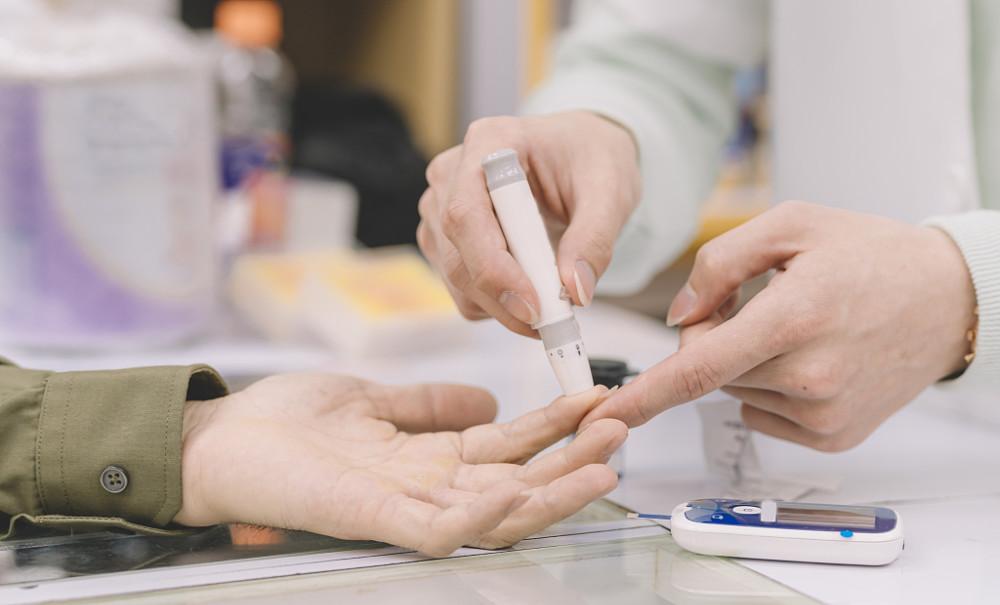Diabetes has become a multi-morbid and common disease.
There are about 425 million adults with diabetes worldwide, and it is expected that 629 million will be diabetics by 2045.
The incidence of diabetes in the mainland is also growing rapidly, and in 2017, a statistic showed that there were 114.4 million diabetics in The 20-79-year-old population in China, ranking first in the world.
However, the diagnosis rate of diabetes in the mainland is only 30% to 40%, that is, 10 diabetics, only 3 to 4 people know that they have diabetes.
Moreover, many people are not clear about the diagnosis of diabetes, and often check that the fasting blood sugar rises, and they doubt whether they have diabetes.

Blood glucose reference index:
First, look at what the different indicators of fasting blood glucose and postprandial 2 hours of blood glucose represent.
1. Normal blood glucose: fasting blood glucose < 6.1mmol/L; blood glucose < 7.8mmol/L 2 hours after meals.
2. Blood glucose reference value of fasting blood glucose damage: fasting blood glucose 6.1~7.0mmol/L, blood glucose < 7.8mmol/L 2 hours after meals.
3. Glucose tolerance reduction blood glucose reference value: fasting blood glucose < 7.0mmol/L; blood glucose 7.8~11.1mmol/L 2 hours after meals.
4. Blood glucose reference value of diabetes: fasting blood glucose ≥ 7.0mmol/L; blood glucose ≥ 11.1mmol/L 2 hours after meals.
Criteria for diagnosing diabetes:
There are typical symptoms of diabetes: such as polydipsia, polyuria, polyphagia, and weight loss, and the random blood glucose ≥ 11.1 mmol/L.
Or check fasting blood glucose ≥ 7.0 mmol/L.
Or check glucose stress test for 2 hours blood glucose ≥ 11.1 mmol/L.
If you don't have symptoms of diabetes, you need to recheck your blood sugar another day.
When doctors diagnose diabetes, they combine the patient's symptoms with fasting blood glucose values and postprandial blood glucose values.
Elevated fasting blood sugar is not necessarily diabetic or is caused by these factors
1. Sujiemu reaction
Old sugar friends know that this is a stress response, and high blood sugar will appear after low blood sugar. Reactive hyperglycemia occurs when severe hypoglycemia occurs and can persist for a long time.
Our body also avoids risks, and when hypoglycemia occurs, the body avoids the harm of low blood sugar.
It secretes more glucagon, growth hormone, epinephrine, and adrenocortical hormones, so there will be an increase in blood sugar after each hypoglycemia.
2. The drug causes blood sugar to rise
Some medications can also cause blood sugar to rise. For example, diuretics, anticancer drugs, antihypertensive drugs, as well as anti-tuberculosis isoniazid and rifampicin, statin lipid-lowering drugs and contraceptives, including cough syrup, can cause blood sugar to rise.
If people who take these drugs for a long time, checking blood sugar may be elevated.
3. Some diseases can also cause blood sugar to rise
Some other common conditions can also cause an increase in fasting of more than 7.
For example, trauma, infections, burns, and increased secretion of adrenocortical hormones can lead to fasting blood glucose tests greater than 7.
In addition, endocrine diseases can also cause increased blood sugar, such as acromegaly, hyperaldosteronism, pheochromocytoma, etc. can cause increased blood glucose on the fasting stomach.
4. Mental stimulation can also lead to increased blood sugar
For example, if you have insomnia the night before or you don't sleep well, the next day you may check your fasting blood sugar for more than 7.
When people have severe anxiety and nervousness, the secretion of catecholamines in the body will increase, and the fasting blood glucose may be checked for more than 7.
If you are frightened and feel fearful, both thyroxine and adrenaline in the body may be elevated, and fasting blood sugar may rise by more than 7.
Therefore, there are many factors that affect blood sugar, and only referring to fasting blood glucose is not necessarily diabetes.
When fasting blood sugar rises, vigilance is not caused by chronic sleep deprivation, stress and anxiety, and often low blood sugar.
In these cases, the body will secrete more glucocorticoids, and the secretion of cortisol in glucocorticoids will increase, and cortisol has a glycemic role.
And the general peak of secretion is between 6 and 8 o'clock in the morning, so it will show an increase in fasting blood sugar.